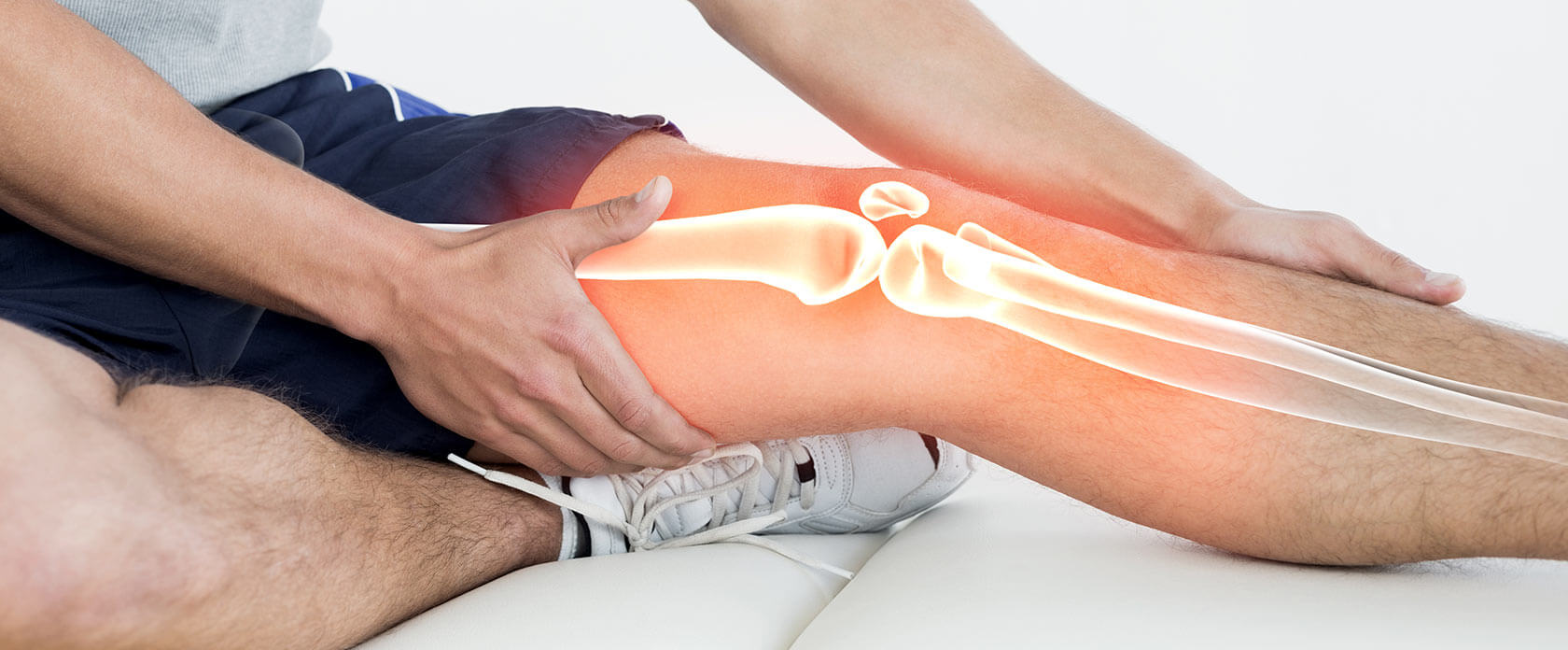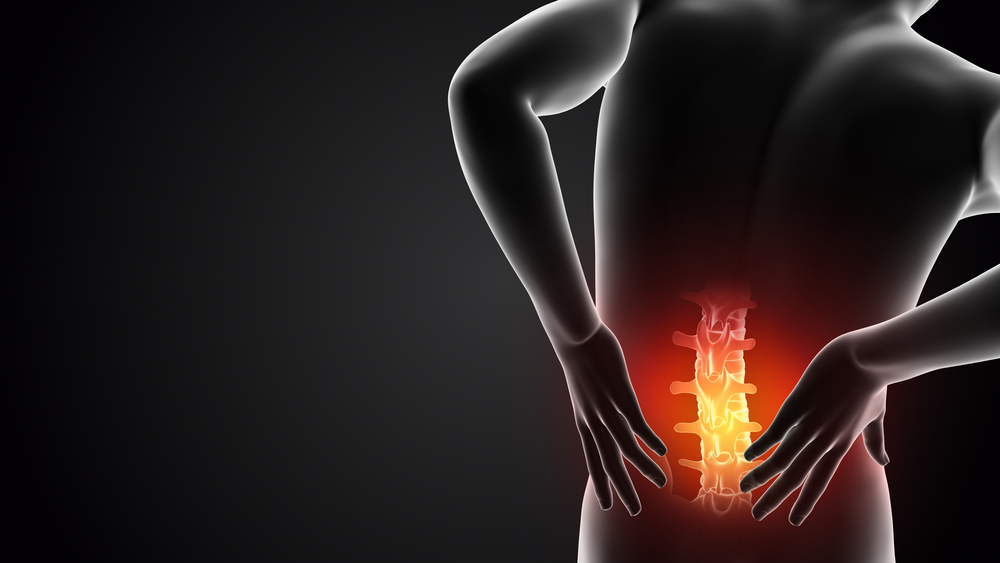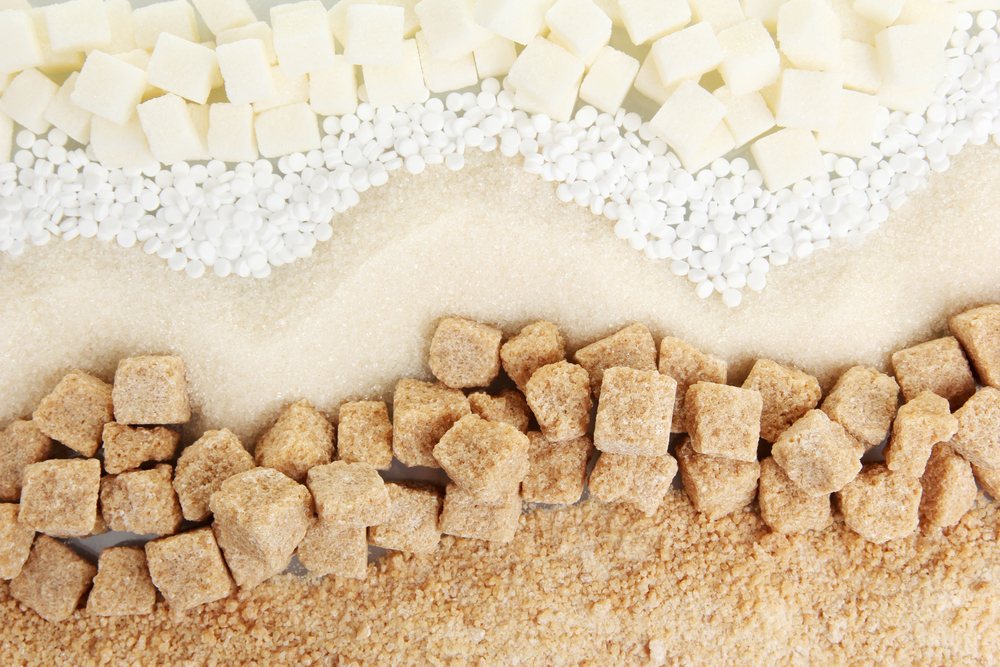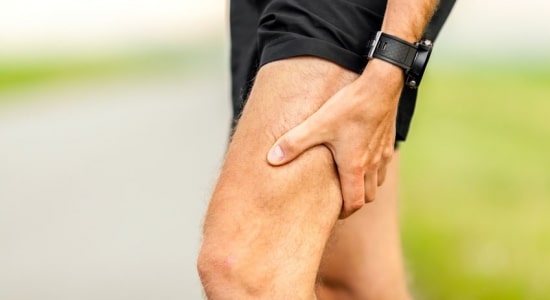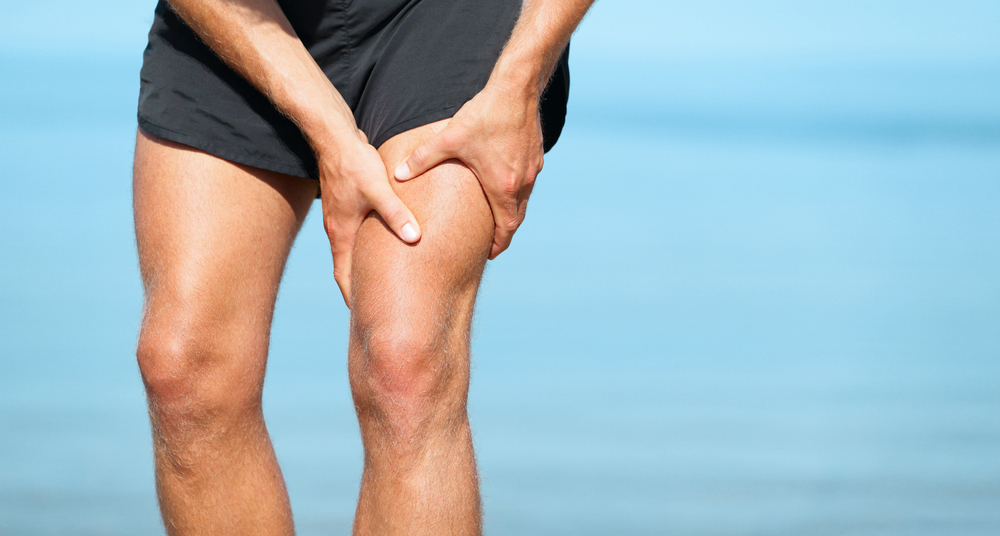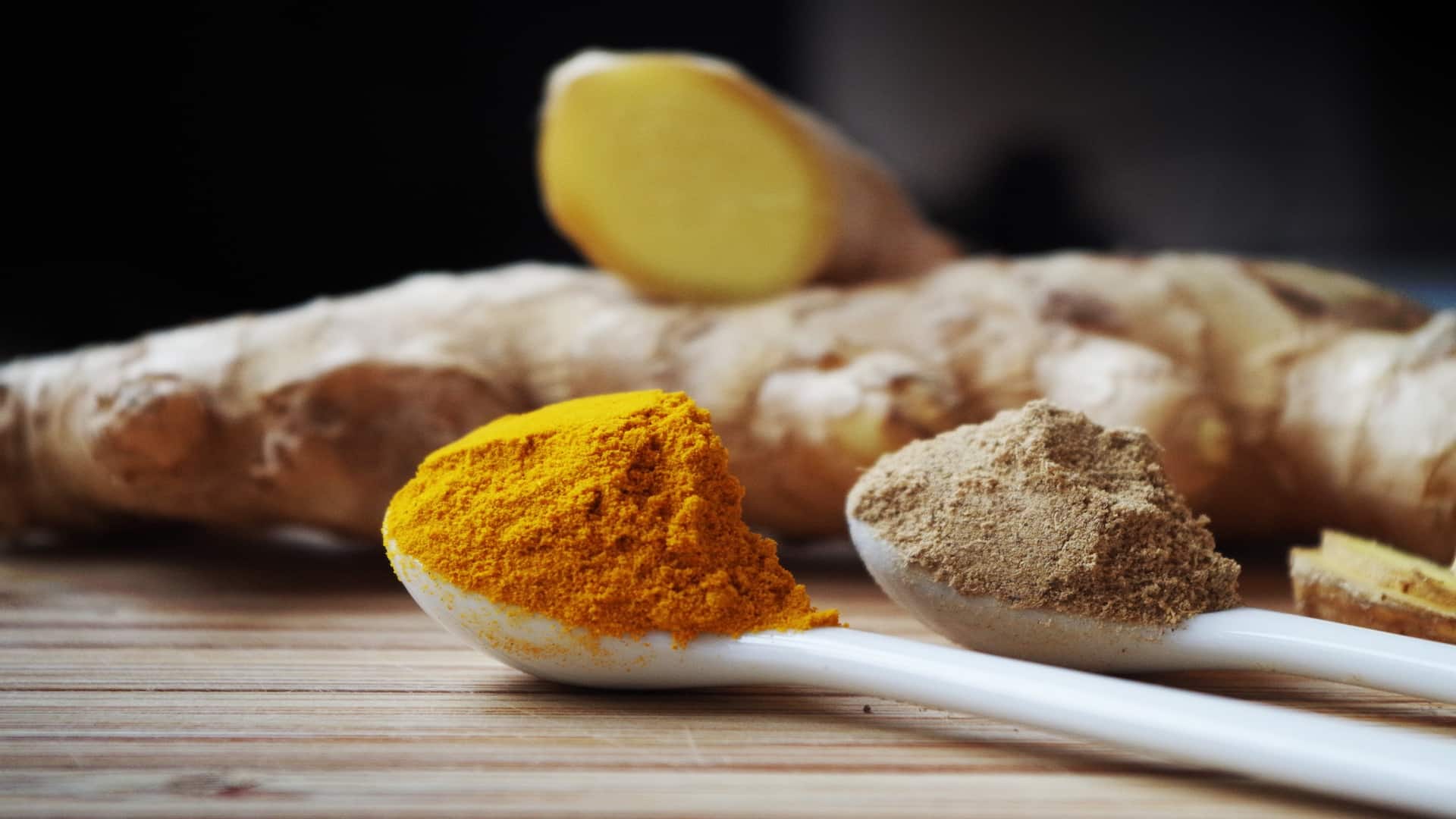Do you regularly suffer from stiff or painful muscles due to stress? Then unfortunately you are not the only one. Muscle pain due to stress is a common problem. Not surprising, because when you are stressed, your body prepares itself to take action and your muscles tense. When you are in 'stress mode' for a longer period of time, this leads to constant tension in your muscles. This ultimately causes you to experience muscle pain as a result of stress. Super annoying of course, but fortunately there are several things you can do to relieve muscle pain due to stress. In this blog we tell you what stress does to your muscles and how you can tackle this problem.
Muscles and joints
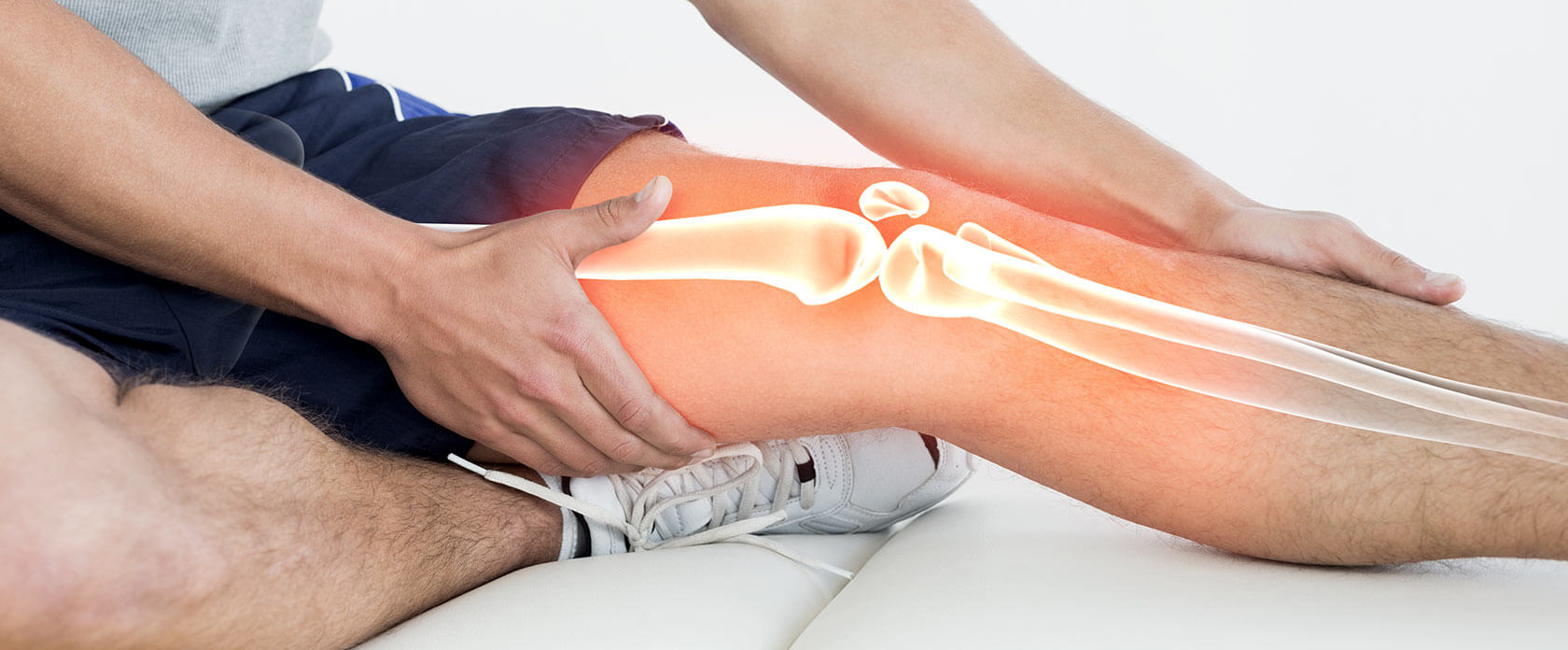
Muscles and joints
You often don't think about it when you pick up a cup or walk up the stairs, but supple muscles and joints are not a given. It is important to keep your muscles and joints healthy. Even at a young age, you may experience sore muscles and joints. In addition, various conditions such as osteoarthritis, fibromyalgia and rheumatism cause a lot of pain. Some people experience temporary muscle pain due to a sports injury, for example.
In this article you will find out how to keep sore muscles and joints supple, what kind of complaints can arise and which products are available to take care of your muscles and joints.
Keeping muscles and joints supple
A healthy lifestyle with regular exercise helps keep your muscles and joints supple. When you exercise, you ensure that your muscles around the joints stay strong and keep cartilage supple.
To keep muscles and joints supple you can, for example:
- Hiking
- Practising yoga
- Cycling
- Running
- Stretching
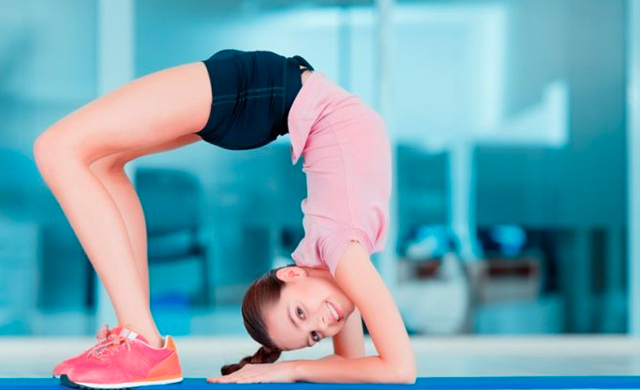
In addition, sufficient exercise is also good for your resistance and mental well-being.
Many places offer exercise in (warm) water, sometimes under the guidance of a physiotherapist. If normal exercise is difficult for you, this can be a good alternative. Warm water is also relaxing for your joints and muscles.
Being overweight plays an important role in joint pain. Your knees have a lot to endure while walking. When you climb stairs, for example, the force on your knee is two to three times your body weight. The best thing, of course, is to prevent your muscles and joints from suffering later in life. A healthy weight contributes to this.
Stiff or painful muscles and joints
Nowadays, more and more people are suffering from sore or stiff muscles and joints. There are several causes that cause these complaints:
Aging
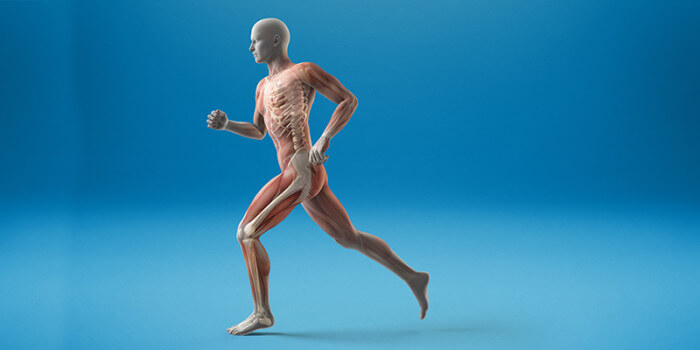
Getting older affects your muscles and joints. Your muscles lose strength and your joints become stiffer. Sufficient exercise keeps your joints and muscles supple. If you already have complaints, you may reduce them with exercise.
Overload
Overexertion occurs, for example, due to being overweight or repetitive movements.
Examples include a sore hip or RSI (Repetitive Strain Injury).
Inflammations
Your joints can inflame; well-known examples are gout and rheumatism. About 2 million Dutch people have rheumatism.
Osteoarthritis
The movement of the bones is less smooth and causes joint pain. 1.1 million Dutch people have osteoarthritis. There are several risk factors for developing osteoarthritis such as:
- Overweight
- Age
- Injury
- Gene
- Sport
Research shows that if you are obese and have osteoarthritis pain in your knees, you can have results if you lose 5.1 kilos.
Fibromyalgia
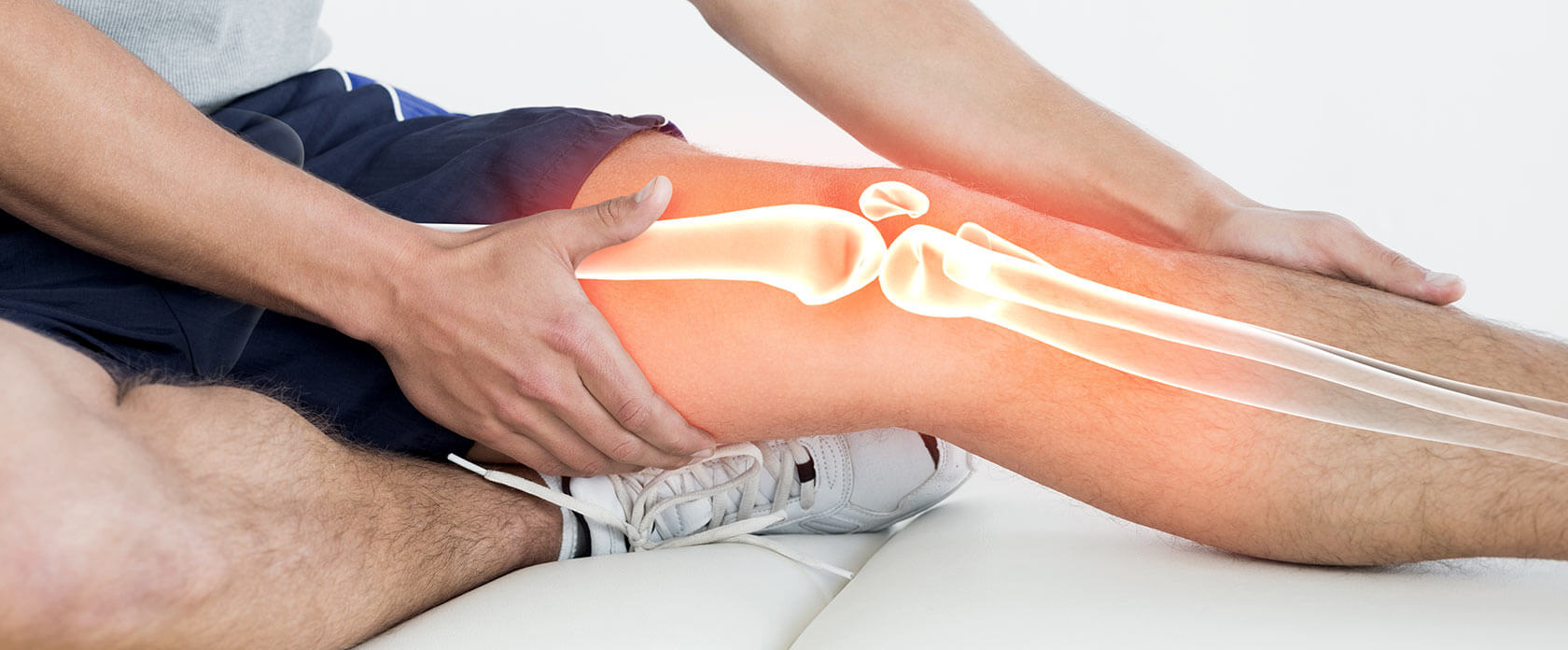
Besides well-known inflammatory diseases such as rheumatoid arthritis and osteoarthritis, there is also fibromyalgia. This is also known as soft tissue rheumatism. With fibromyalgia, you often have chronic pain, not your joints, but your muscles and connective tissue are the culprit. Fibromyalgia is not inflammation.
Magnesium deficiency
Muscle cramps can be a symptom of magnesium deficiency. This too does not feel pleasant in your muscles. You can supplement such a magnesium deficiency by taking supplements or taking a bath with magnesium. Muscle complaints of a temporary nature are also possible, such as a sprain or sports injury. If you have a medical condition, always consult a doctor about the best treatment.
Vitamin deficiency
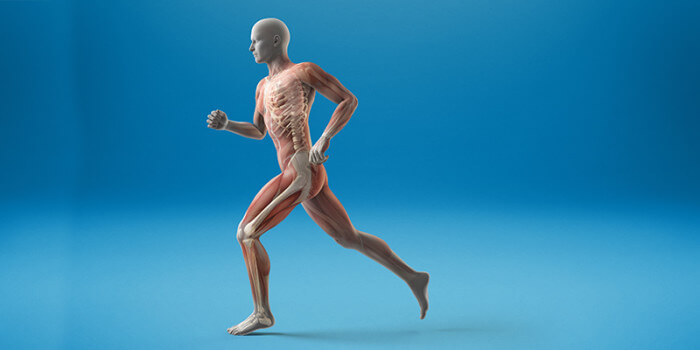
Another common deficiency is vitamin deficiency. Common deficiencies in muscle and joint complaints are vitamin B12 and vitamin D.
If you don't get enough vitamin B12, certain systems in your body may not work as well as red blood cell production. A vitamin B12 deficiency can cause joint complaints. Vitamin B12 is obtained from animal products, for instance. You can supplement the deficiency by having vitamin B12 injections injected through your GP. Various supplements containing vitamin B12 are also available, such as vitamin pills.
Vitamin D is important for your muscles and bones. If you don't get enough vitamin D, you may experience pain in your muscles and joints. Vitamin D has an important role in absorbing calcium from food. Vitamin D is useful for your muscle function. Among other things, you get vitamin D from sunlight and food. There are also supplements that contain vitamin D.
Stress
If you experience a lot of stress, sometimes you also suffer from stiff or sore muscles. There are some solutions that are stress-relieving:
- A hot bath
- A visit to the sauna
- (Shiatsu) massage
- Walking
- Sufficient sleep
- Meditation
- Yoga
Ways to take care of your muscles and joints
Nowadays, there are various ways and remedies that make having stiff muscles and joints a little more bearable and with which you take care of these aching muscles. Generally, these products and remedies are easily available. These include:
- Muscle and joint cream
- Gel for muscles and joints
- Nutrition and natural remedies
- Supplements
In the following paragraphs, you will learn more about these products and how they work.
Muscle and joint cream
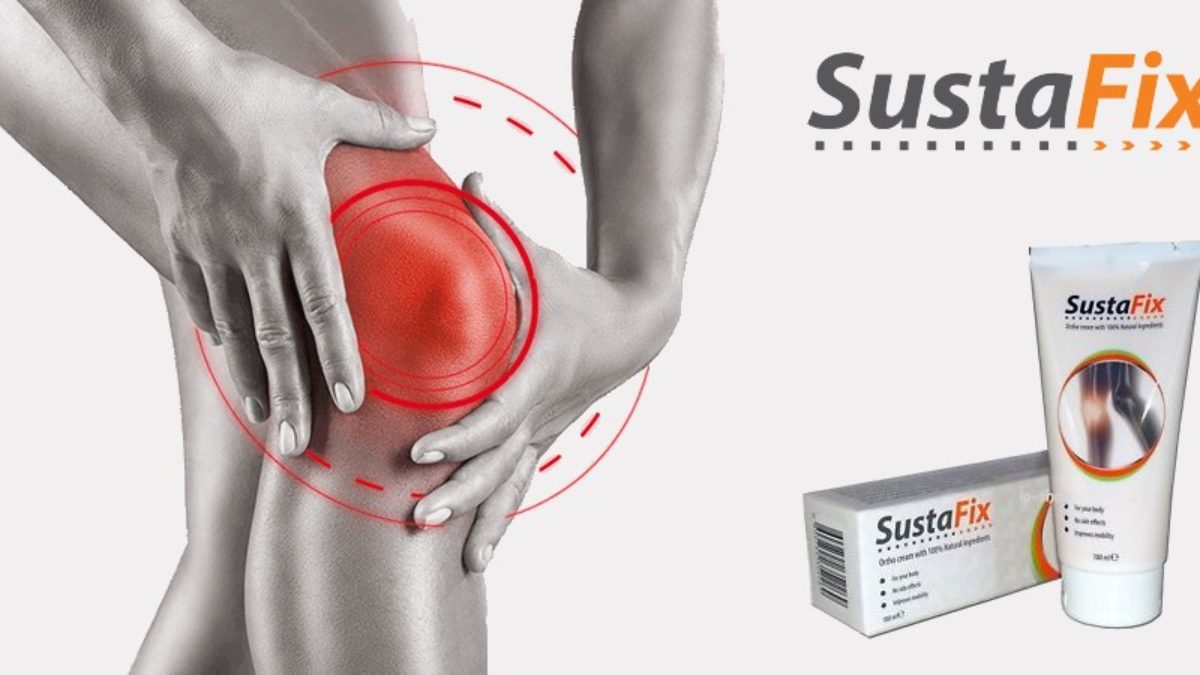
A cream for sore joints and muscles can be used for stiff, aching muscles, a stiff neck and sometimes a sports injury. You smear a little cream on the sore spot so that the cream relieves the pain. An advantage of these creams is that they usually also have a caring, restorative effect. Sometimes the smeared area feels a little warm, this can be a drawback for some people. A popular cream that we sell a lot is Sustafix.
Gel for muscles and joints
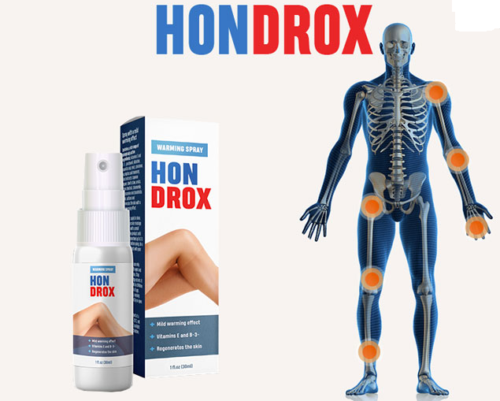
There are several gels for muscles and joints in circulation. Some of these gels contain a small amount of anti-inflammatory to relieve pain. There are also gels that have a cooling effect. You smear a small amount of gel on the painful area and let it soak in for a while. You use this gel for supple joints and relaxed muscles. An advantage of these kinds of gels is that they are widely available. Sometimes these gels have a strong smell, this can be seen as a disadvantage. We have several gels in our range including Hondrox. This gel is very popular.
Nutrition and natural remedies
A healthy lifestyle includes proper nutrition for muscles and joints. There are several foods that contribute positively to this such as:
- Vitamin C
- Calcium
- Vitamin D
- Omega-3 fatty acids
- Nuts and seeds
- Green vegetables
By eating oily fish like salmon, you get Omega 3 fatty acids. This way, you easily fulfil your Omega 3 requirement.
Plant-based diets are also said to have a positive impact on joint problems such as rheumatism and osteoarthritis, according to several studies. In a plant-based diet, you do not eat animal products such as dairy, meat and eggs. The advantage of eating healthy food is that it has a positive effect on your whole body. However, many people sometimes find it difficult to gauge whether they are eating enough healthy food. Nowadays, there are several apps where you can keep track of what food you take in.
Foods to cut down
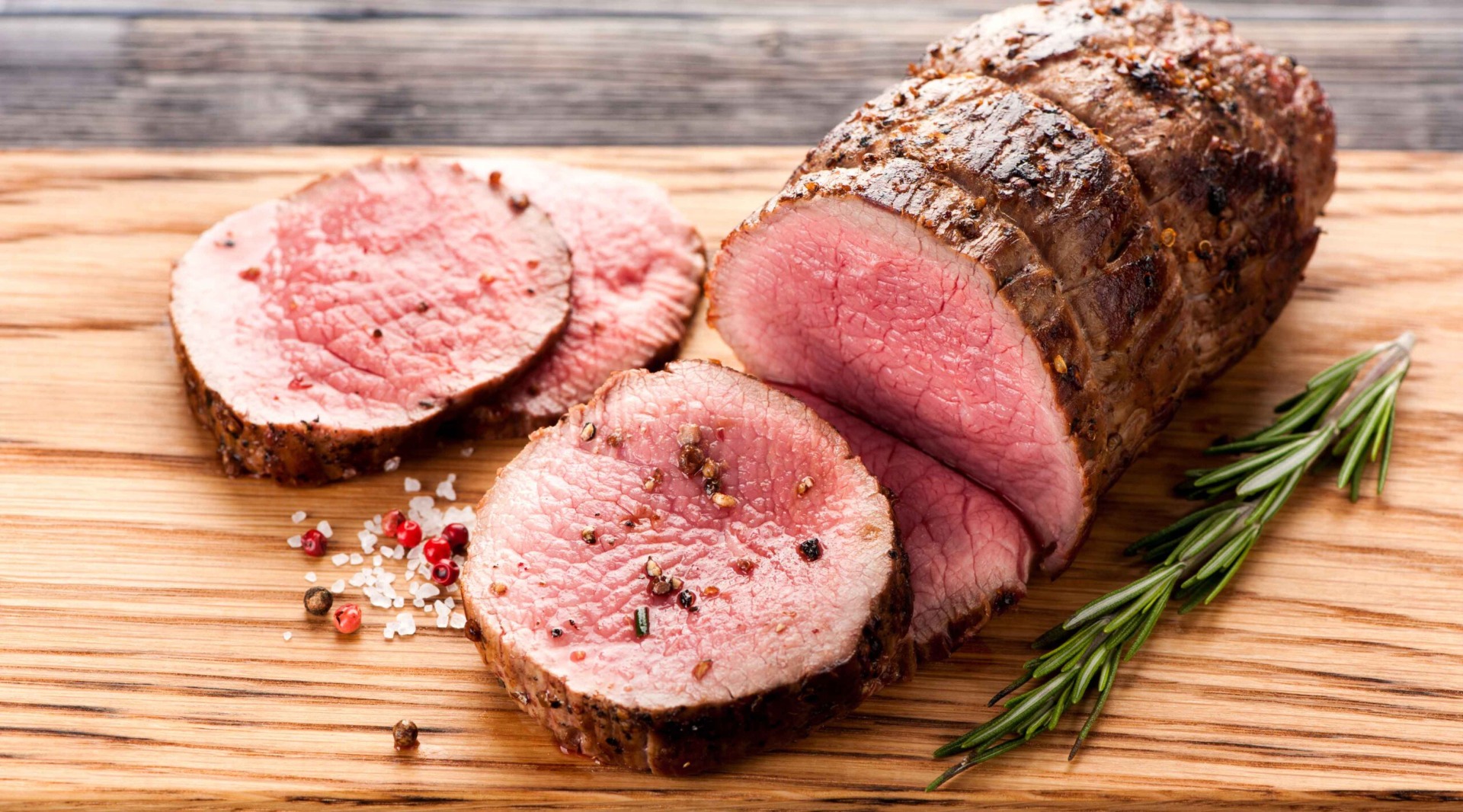
According to an article written by a doctor, there are also food products that have a bad impact on your aching muscles and joints such as:
- Deep-fried food
- Red meat
- Foods high in sugar
- Gluten
So if you are suffering from your joints and stiff muscles, it is important to take a close look at whether you are getting the right nutrients and which products are better left out.
Besides healthy foods, there are other natural remedies you can take for relieving pain, for example by drinking ginger drink. In addition, blackcurrant leaf is said to be anti-inflammatory.
Aromatherapy
A natural remedy for aching muscles and joints is aromatherapy. You then use essential oils that you massage into your skin or drip into a warm bath. Aromatherapy is also said to help well with stress complaints. Various scents are available such as:
- Peppermint
- Lavender
- Eucalyptus
- Rosemary
- Black pepper
Each scent has its own effect, so check carefully beforehand whether the scent of your choice is suitable for the purpose you want to use the oil for. Lavender, for example, is for relaxation and eucalyptus for cooling. These scents are generally quite easily available, which is an advantage, however, some scents are rather strong, which can be perceived as a disadvantage.
Supplements
A supplement for muscles and joints is sometimes a good addition to your diet. The advantage of taking supplements is that it is quick and easy. They are also freely available. For example, you can think of a supplement with magnesium, which promotes muscle relaxation, or vitamin pills. There are also supplements that contain multiple ingredients such as calcium and zinc. Supplements are often not cheap, this can be a disadvantage.
Disclaimer: muscle supplements such as creams and gels are not a panacea - as there is no such thing. It can help you, but always make sure you use supplements responsibly and informed. When in doubt, consult a doctor.
Products for muscles and joints
Slimminglabs offers several supported products for sore muscles and joints:
- Imosteon is a cream and applied two to three times a day to your joints, sores and back, for example.
- Hondrofrost is a muscle & joint balm, you smear a little gel on the sore area two to three times a day.
- Artonova is a dietary supplement with a focus on healthy joints and bones.
- Nautubone is a muscle and joint cream, which you massage on the sore spot for 30 seconds.
- Arthrolon is a muscle & joint gel, you smear this on the sore spot once or twice a day.
- Artrovex is a cream for joints, apply up to twice a day with massaging movements.
Slimminglabs recommends reading the leaflet of all products carefully and testing creams and gels on a small area 48 hours before use.
Frequently asked questions
What is best for you depends on exactly what symptoms you have. A sports injury requires a different approach than an inflammatory condition such as rheumatism. Generally speaking, keeping your muscles and joints supple means getting enough exercise. For example, with walking, yoga or cycling. It is very annoying when you experience a lot of pain due to stiff muscles and joints. There are several ways to make this pain a little more bearable. For instance, you can ensure a healthy lifestyle with enough exercise and the right foods. There are also various creams, gels and other supplements available to help you relieve the pain. It is best to test a small amount of gel on, say, the inner forearm 48 hours before use. Then, if no rash or irritation is noticeable, apply the gel to the sore areas two to three times a day. There are several ingredients good for muscles and joints. These include
magnesium, vitamin C, vitamin D, calcium and omega 3. Examples of foods
that contain these ingredients are salmon (vitamin D and omega 3), citrus fruits such as
orange (vitamin C) and milk (magnesium and calcium). There are several supplements that target muscles and joints. For sore spots, for example, you can opt for a cream; if you have a sports injury, then a gel might be more suitable. If you want to use something that is also for your bones, you can take a nutritional supplement.
Bibliography
Gezondheidsnet (september 2010) Spieren en gewrichten, hoe zit het? https://www.gezondheidsnet.nl/spieren-en-gewrichten/spieren-en-gewrichten
Better Health Channel (geraadpleegd op 13 april 2023( Ageing-muscles bones and joints https://www.betterhealth.vic.gov.au/health/conditionsandtreatments/ageing-muscles-bones-and-joints
Zelfzorg (geraadpleegd op 4 april 2023) Spieren en gewrichten (voor soepele) https://www.zelfzorg.nl/gezond-blijven/spieren-en-gewrichten-voor-soepele
Harvard Health Publicing (December 2019) Why weight matters when it comes to joint pain https://www.health.harvard.edu/pain/why-weight-matters-when-it-comes-to-joint-pain
Gezondheidsplein (geraadpleegd op 4 april 2023) Gewrichtspijn https://www.gezondheidsplein.nl/aandoeningen/gewrichtsklachten/item40461
Reuma Nederland (geraadpleegd op 13 april) Wat is artrose?
https://reumanederland.nl/reuma/vormen-van-reuma/artrose/
National Library of Medicine (july 2014) Osteoarthritis, obesity and weight loss: evidence, hypotheses and horizons – a scoping review
https://www.ncbi.nlm.nih.gov/pmc/articles/PMC4238740/
Gezondheidsnet (augustus 2020) Eten tegen gewrichtsklachten https://www.gezondheidsnet.nl/spieren-en-gewrichten/eten-tegen-gewrichtsklachten
News Medical Life Sciences Plant-based diet could heal your rheumatoid arthritis (september 2019) https://www.news-medical.net/news/20190913/Plant-based-diet-could-heal-your-rheumatoid-arthritis.aspx
Frontiers ( september 2019) Nutrition Interventions in Rheumatoid Arthritis: The Potential Use of Plant-Based Diets. A Review
https://www.frontiersin.org/articles/10.3389/fnut.2019.00141/full
MedicineNet (juni 2016) What Foods Cause Joint Pain? https://www.medicinenet.com/what_foods_cause_joint_pain/article.htm
Bewegen zonder pijn (geraadpleegd op 5 april 2023) Wat is reuma precies? https://www.bewegenzonderpijn.com/wat-is-reuma/
Bewegen zonder pijn(geraadpleegd op 5 april 2023) Ontstekingen in de gewrichten bij reumatoïde artritis en artrose https://www.bewegenzonderpijn.com/ontstekingen-gewrichten/ Bewegen zonder pijn (geraadpleegd op 6 april 2023) Fibromyalgie https://www.bewegenzonderpijn.com/fibromyalgie/
Healthline (mei 2019) Try This: 18 Essential Oils for Sore Muscles https://www.healthline.com/health/fitness-exercise/essential-oils-for-sore-muscles
Informatiecentrum voedingssupplementen & gezondheid geraadpleegd op 6 april 2023) Wat is een vitamine B12 tekort?
https://www.ivg-info.nl/voedingssupplementen/vitamines/vitamine-b12-cobalamine/wat-is-een-vitamine-b12-tekort/
-
Read more »
-
Read more »
Many people with rheumatism and other joint disorders will recognize it: joints that become stiffer and more painful when it gets cold, starts to rain or thunderstorms approach. In warm weather, the joint pain seems to decrease again. It is even said that these people, because of their sensitivity, can predict bad weather.
In this blog we will tell you more about joint pain when the weather changes and we will give you a number of tips that can help you reduce painful joints caused by the cold.
-
Read more »
Anyone can get painful joints. This is not just due to illness or old age, for example; there may be other underlying causes. To do what to do about joint pain, it is a good idea to first find out whether it is really painful joints. Is this the case? Then it is important to find out what exactly is causing it. Joint pain can be recognised by several characteristics. For instance, persistent pain, but also stiffness, swelling, redness and/or a feeling of warmth around the affected joints. The pain may be mild, but also nagging or sharp.
-
Read more »
As you get older, you may experience painful joints. This pain is the result of the decrease in collagen. Collagen plays an important role in maintaining the health and function of cartilage in the joints. A decrease in collagen can result in cartilage wear, which can then cause annoying pain and can even hinder you from performing daily activities. In this blog we will tell you more about the benefits of collagen for joints and how it can contribute to reducing joint pain.
-
Read more »
We all suffer from stiffness from time to time. And it certainly isn't nice! It can even be very hampering, for instance while carrying out daily activities. Fortunately, there are many different and simple exercises for supple muscles. In this blog we share five effective exercises to loosen up stiff muscles.
-
Read more »
We often think that getting older means that we get stiff muscles and joints, but this does not have to be the case. A healthy diet can help keep muscles and joints flexible, even as we get older. In this blog you can read which vitamins and minerals are important and in which foods you can find them.
-
Read more »
According to the Diabetes Fund, a Dutch person eats an average of 110 grams of sugar every day. That's a whopping 10,000 sugar cubes (40 kilos!!) a year. We know that excessive sugar intake can lead to obesity, cardiovascular disease and dental problems, but does it also affect your muscles?
In this blog, we explain the role sugar plays in stiff muscles and give tips on how to limit your sugar intake.
-
Read more »
We all suffer from stiffness in our bodies from time to time. Because we have been exercising intensively, sitting for too long or simply because we are getting older by the day. Whatever the cause of stiff muscles may be; it feels unpleasant and it can hinder tremendously during daily activities. Moving around feels a bit annoying or even painful, while movement is so important to reduce muscle stiffness. You really don't need physiotherapy or massages right away to get rid of it, but what to do about stiff muscles? We tell you more about it in this blog!
-
Read more »
What is good for your joints? Our 5 tips
It's nice if you have flexible joints. These ensure that you have a lot of freedom of movement (easily bending, twisting and stretching), you experience less pain and discomfort, you have better posture and better balance and coordination. The older you get, the faster the risk of joint problems increases. Fortunately, you can do a lot yourself to keep your joints in good condition. Curious about what is good for your joints? In this blog we give 5 tips.
-
Read more »
Did you know that curcuma makes your joints and muscles more supple and helps relieve joint pain? So besides giving your food colour and flavour, this spice from India also has many health benefits and anti-inflammatory effects. No wonder in India this particular spice has been dubbed 'the sacred herb'. In this blog, you will read all about curcuma's beneficial effects on joints and how you can apply curcuma in your daily life.



